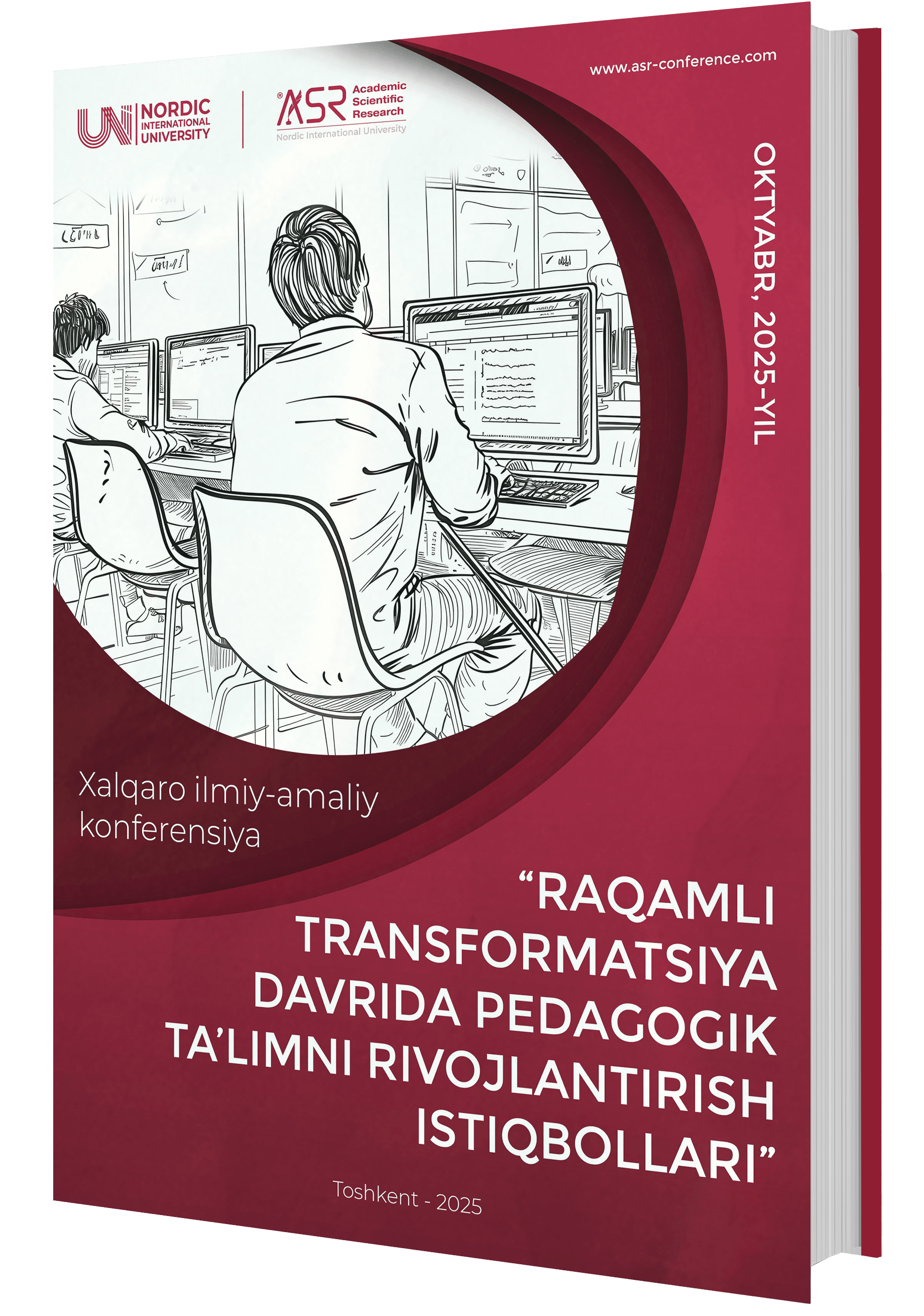LEVERAGING ARTIFICIAL INTELLIGENCE FOR DATA, DECISIONS, AND EFFICIENCY IN SCHOOL GOVERNANCE
Аннотация
This article examines the strategic significance of Artificial Intelligence (AI) in modern school management. It highlights the key directions of AI application — deep data analysis, identification of individual learning needs, efficient use of resources, and monitoring of safety. The study also emphasizes the necessity of human–AI collaboration, the importance of addressing ethical issues such as data protection and algorithmic errors, and the development of digital literacy among educational leaders.Particular attention is paid to the Presidential Decision No. PQ-4996 of 17 February 2021 (“On measures to create conditions for the accelerated introduction of AI technologies”) and the Presidential Decree No. PF-6079 of 5 October 2020 (“On approval of the Digital Uzbekistan – 2030 Strategy”), which provide the political and practical foundations for the integration of AI into educational processes and school governance.The article concludes that the main challenges lie in maintaining the balance between automation and human oversight, as well as ensuring equitable access to technology. Ultimately, AI should not replace school leaders but rather serve as an effective tool to support and enhance their management functions.
Библиографические ссылки
O‘zbekiston Respublikasi Prezidentining Qarori. (2021, 17-fevral). Sun’iy intellekt texnologiyalarini jadal joriy etish uchun shart-sharoitlar yaratish chora-tadbirlari to‘g‘risida (PQ-4996). LexUZ. https://lex.uz/docs/5296335
O‘zbekiston Respublikasi Prezidentining Farmoni. (2020, 5-oktabr). “Raqamli O‘zbekiston – 2030” strategiyasini tasdiqlash to‘g‘risida (PF-6079). LexUZ. https://lex.uz/docs/5031028
Drachsler, H., & Kalz, M. (2016). The MOOC and learning analytics innovation cycle (MOLAC): A reflective summary of ongoing research and its challenges. Journal of Computer Assisted Learning, 32(3), 281–290. https://doi.org/10.1111/jcal.12137
Holmes, W., Bialik, M., & Fadel, C. (2022). Artificial Intelligence in Education: Promises and Implications for Teaching and Learning. Center for Curriculum Redesign.
Ifenthaler, D. (2023). Artificial Intelligence in Education: Promises and Implications for Teaching and Learning. Educational Technology Research and Development, 71, 123–141. https://doi.org/10.1007/s11423-023-10121-9
Luckin, R., Holmes, W., Griffiths, M., & Forcier, L. B. (2016). Intelligence Unleashed: An Argument for AI in Education. Pearson.
Romero, C., & Ventura, S. (2020). Educational Data Mining and Learning Analytics: An updated survey. Wiley Interdisciplinary Reviews: Data Mining and Knowledge Discovery, 10(3), e1355. https://doi.org/10.1002/widm.1355
Siemens, G., & Baker, R. S. J. D. (2012). Learning analytics and educational data mining: Towards communication and collaboration. Proceedings of the 2nd International Conference on Learning Analytics and Knowledge, 252–254. https://doi.org/10.1145/2330601.2330661
Williamson, B., & Piattoeva, N. (2022). Education governance and datafication: Reconfiguring accountability and transparency through digital technologies. Policy Futures in Education, 20(1), 5–20. https://doi.org/10.1177/14782103211065812
Загрузки
Опубликован
Выпуск
Раздел
Лицензия
Copyright (c) 2025 Muyassar Abduxamidova

Это произведение доступно по лицензии Creative Commons «Attribution-NonCommercial» («Атрибуция — Некоммерческое использование») 4.0 Всемирная.
Условия лицензии
Эта работа доступна под лицензией Creative Commons Attribution-NonCommercial 4.0 International License. Чтобы просмотреть копию этой лицензии, посетите http://creativecommons.org/licenses/by-nc/4.0/ или отправьте письмо по адресу Creative Commons, PO Box 1866, Mountain View, CA 94042, США.
По этой лицензии вы можете:
Поделиться — копируйте и распространяйте материал на любом носителе и в любом формате.
Адаптируйте — делайте ремиксы, трансформируйте и дорабатывайте материал.
Лицензиар не может отозвать эти свободы, если вы соблюдаете условия лицензии. На следующих условиях:
Атрибуция. Вы должны указать соответствующую ссылку, предоставить ссылку на лицензию и указать, были ли внесены изменения. Вы можете сделать это любым разумным способом, но не таким образом, который бы предполагал, что лицензиар одобряет вас или ваше использование.
Некоммерческое использование — вы не имеете права использовать материал в коммерческих целях.
Никаких дополнительных ограничений. Вы не имеете права применять юридические условия или технологические меры, которые юридически запрещают другим делать все, что разрешено лицензией.





